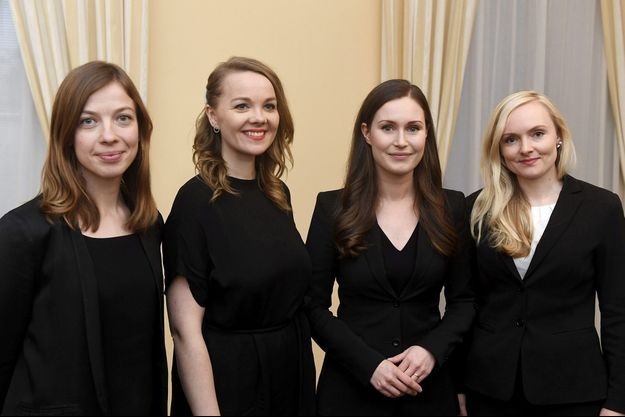2016 was, without a doubt, an eventful year.
Donald Trump was elected president of the United States. The UK voted to leave the European Union. Colombia’s government signed a peace treaty with the FARCs.
But under the radar of most people, one of the most profound changes to modern Western society took place as well: millennials overtook baby boomers as the largest generation alive.
Just to clarify who is who – millennials are people born between 1981 and 1996.
Boomers, on the other hand, are those born between 1946 and 1964.
For decades, baby boomers defined the marketplace. Politics were shaped to protect their interests, and advertisers built thriving business models around serving their needs.
They enjoyed peak levels of income at work and were the first generation to feel truly optimistic about the future.
Boomers also oversaw huge cultural changes to the fabric of society – including the counterculture movement of the 60s, the civil rights movement and the rise of feminism.
In short – boomers had a profound impact on society.
But just as boomers shaped much of the second half of the last century, I believe millennials will have just as big of an impact – if not bigger.
This generational shift is poised to be one of the most wide-reaching trends of the next decades.
That means that a lot of things are going to change because millennials are very different from their parent boomers.
For example, whereas boomers grew up with the idea of holding a job forever – most millennials don’t see it that way.
In fact, the very idea of a fixed career for life is getting more and more uncommon. Millennials already expect to have to reinvent themselves several times throughout their working years.
Millennials are also much more tech-savvy than their parents and grew up in front of screens, expecting everything to be served to them, instantly.
They are mobile, conscious, eco-friendly and want products and services that not only deliver what they want but also align with their values.
And they care about the environment, racial-and-gender equality and social justice more than any other generation today.
It goes without saying that such differences will mean radical changes to the way millennials invest and do business.
For example, millennials aren’t interested in holding diversified portfolios of stocks and bonds.
Instead, they want to own new asset classes and investments that they believe will have a positive impact on society, and that they’re familiar with.
Coinbase, the most popular platform for buying and selling cryptocurrencies, now has more active accounts than Charles Schwab, one of the largest traditional brokerage institutions in the United States.
And impact investing – the idea of investing in companies or innovations that have a positive social impact – is exploding in popularity.
Change is already here, and it’s going to accelerate.
As millennials acquire and accumulate wealth, they will have a profound impact on the investing landscape in general.
They have particular preferences, needs, and desires – and businesses that can meet those needs effectively will thrive.
For investors, that means huge opportunities in anything from cannabis, to conscious consumer brands, food-delivery businesses, fake meat alternatives, cryptocurrencies, and pretty much anything eco-friendly, among many more.
So if you think avocado toasts, boxed water, social media or Uber are just a fad – I encourage you to reconsider.
Millennials want a different world from the ones their parents built. And they’re actively voting with their money to build it.
They’ll revolutionize business, politics and the way we organize ourselves in society.
Finland, a small country where all except one of the major political leaders, including the prime minister, are millennials – and women – is just the beginning.
All around the world society is changing, and millennials – and notably women – are at the forefront of that change.
As an investor, you can resist this trend, and stick with the old ways. Or you can adapt, do your homework and thrive as the trends unfold.
I’ve talked a lot about cannabis already – an obvious benefactor of the progressive minds of the large cohort of young people. But that’s not all.
In the coming months, we’ll be looking together at more ways you can profit from this unstoppable trend. It’s one that’s definitely worth putting on your radar.
To freedom,
Donald Trump was elected president of the United States. The UK voted to leave the European Union. Colombia’s government signed a peace treaty with the FARCs.
But under the radar of most people, one of the most profound changes to modern Western society took place as well: millennials overtook baby boomers as the largest generation alive.
Just to clarify who is who – millennials are people born between 1981 and 1996.
Boomers, on the other hand, are those born between 1946 and 1964.
For decades, baby boomers defined the marketplace. Politics were shaped to protect their interests, and advertisers built thriving business models around serving their needs.
They enjoyed peak levels of income at work and were the first generation to feel truly optimistic about the future.
Boomers also oversaw huge cultural changes to the fabric of society – including the counterculture movement of the 60s, the civil rights movement and the rise of feminism.
In short – boomers had a profound impact on society.
But just as boomers shaped much of the second half of the last century, I believe millennials will have just as big of an impact – if not bigger.
This generational shift is poised to be one of the most wide-reaching trends of the next decades.
That means that a lot of things are going to change because millennials are very different from their parent boomers.
For example, whereas boomers grew up with the idea of holding a job forever – most millennials don’t see it that way.
In fact, the very idea of a fixed career for life is getting more and more uncommon. Millennials already expect to have to reinvent themselves several times throughout their working years.
Millennials are also much more tech-savvy than their parents and grew up in front of screens, expecting everything to be served to them, instantly.
They are mobile, conscious, eco-friendly and want products and services that not only deliver what they want but also align with their values.
And they care about the environment, racial-and-gender equality and social justice more than any other generation today.
It goes without saying that such differences will mean radical changes to the way millennials invest and do business.
For example, millennials aren’t interested in holding diversified portfolios of stocks and bonds.
Instead, they want to own new asset classes and investments that they believe will have a positive impact on society, and that they’re familiar with.
Coinbase, the most popular platform for buying and selling cryptocurrencies, now has more active accounts than Charles Schwab, one of the largest traditional brokerage institutions in the United States.
And impact investing – the idea of investing in companies or innovations that have a positive social impact – is exploding in popularity.
Change is already here, and it’s going to accelerate.
As millennials acquire and accumulate wealth, they will have a profound impact on the investing landscape in general.
They have particular preferences, needs, and desires – and businesses that can meet those needs effectively will thrive.
For investors, that means huge opportunities in anything from cannabis, to conscious consumer brands, food-delivery businesses, fake meat alternatives, cryptocurrencies, and pretty much anything eco-friendly, among many more.
So if you think avocado toasts, boxed water, social media or Uber are just a fad – I encourage you to reconsider.
Millennials want a different world from the ones their parents built. And they’re actively voting with their money to build it.
They’ll revolutionize business, politics and the way we organize ourselves in society.
Finland, a small country where all except one of the major political leaders, including the prime minister, are millennials – and women – is just the beginning.
All around the world society is changing, and millennials – and notably women – are at the forefront of that change.
As an investor, you can resist this trend, and stick with the old ways. Or you can adapt, do your homework and thrive as the trends unfold.
I’ve talked a lot about cannabis already – an obvious benefactor of the progressive minds of the large cohort of young people. But that’s not all.
In the coming months, we’ll be looking together at more ways you can profit from this unstoppable trend. It’s one that’s definitely worth putting on your radar.
To freedom,

